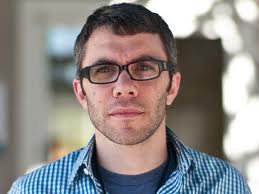Catholics Were the Muslims of the 19th Century

Writing in the New York Review of Books blog, Notre Dame professors John T. McGreevy and R. Scott Appleby recently provided a useful lesson on the history of religious discrimination in the United States. McGreevy and Appleby—both Catholics themselves—write that “For much of the nineteenth century Catholics in America were the unassimilated, sometimes violent ‘religious other.’ Often they did not speak English or attend public schools. Some of their religious women—nuns—wore distinctive clothing. Their religious practices and beliefs—from rosaries to transubstantiation—seemed to many Americans superstitious nonsense.”
Like Muslims in America today, Catholics in the 19th century faced anger over the treatment of Protestants and Jews in their countries of origin. It didn’t help their image when Catholic leaders proclaimed their opposition to “progress, liberalism, and modern civilization” or said their mission was to convert the entire American government to Catholicism. In the middle of the century, the anti-Catholic American Party—also known as the Know Nothings—was a force in national politics, and nativist American mobs attacked Catholic churches and priests.
Hardly any of us remember this now. As McGreevy and Appleby point out, we elected a Catholic president in John F. Kennedy in 1960. Both Vice President Joe Biden and Speaker of the House Nancy Pelosi (D-CA) are Catholic, as are an 6 of the 9 Supreme Court justices. Today Catholics are among those attending rallies against the so-called “Ground Zero Mosque.”
Of course, the parallels between 19th century Catholics and contemporary Muslims are not exact. But, as I have argued, the actions of radical Muslim terrorists are no more representative of Muslims in America or around the world than the most extreme opinions of Catholics were in the 19th century. Consider the chart Mark Shea posts comparing the huge number of Muslims around the world with the small number of members of Al Qaeda. As Shea points out the vast majority of the millions of Muslim in the U.S. are no more terrorists than any of us are.
McGreevy and Appleby put it beautifully when they say that “if the Catholic experience in the United States holds any lesson it is that becoming American also means asserting one’s constitutional rights, fully and forcefully, even if that assertion is occasionally taken to be insulting. The genius of the American experiment in religious liberty is precisely this long-term confidence that equal rights for all religious groups builds the loyalty every democratic society needs.”





